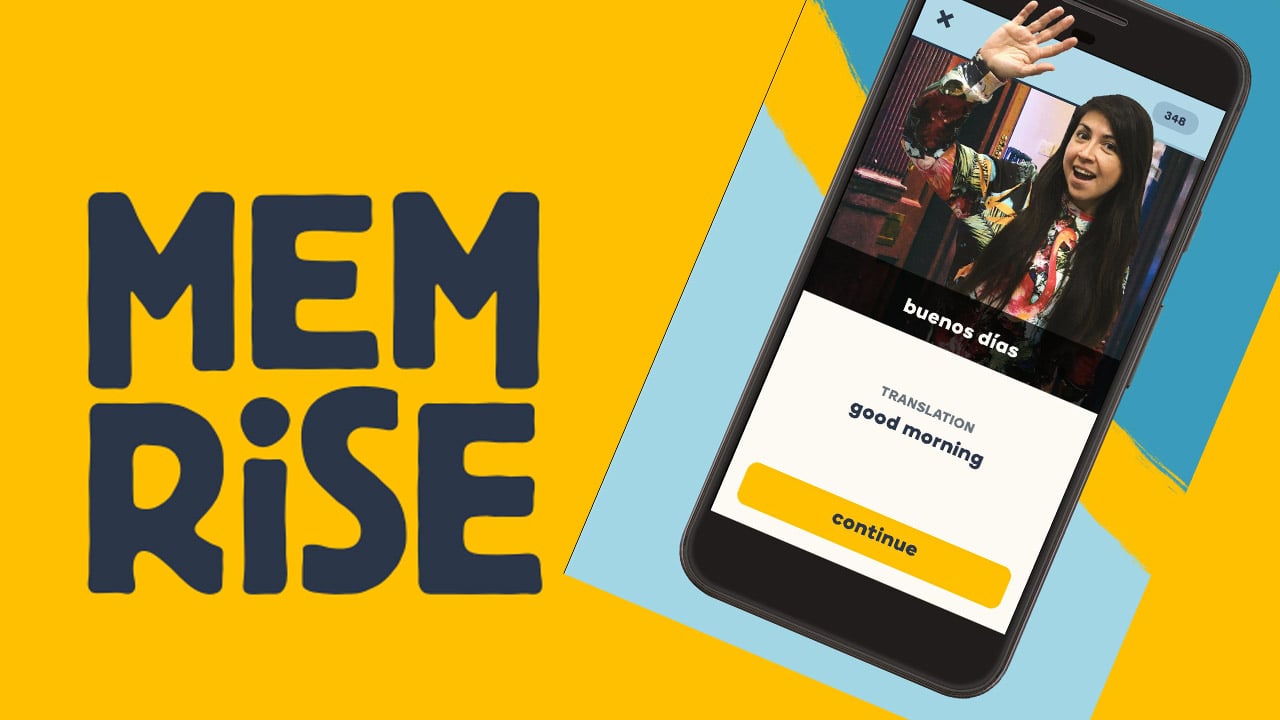There are a ton of amazing Chinese learning Android and iOS apps out there. However, their usefulness is usually limited to the goals and habits of those who are using them. The key to learning with these apps is to find what works for you, and what doesn’t.
Accordingly, you can then separate these apps by their strengths and weaknesses, their purposes, and their main training targets, which will save you time and energy that you can then give to proper learning.
So here it is, our recommendations of the best apps to learn the Chinese language that is available right now. Some of these apps may be a surprise, while some are quite popular.
Table of contents
Can you learn Chinese with an app?
There is no single book, course, or app that can provide you with everything you need to learn a language.
So, while you can learn Chinese with an app, it won’t be the only thing you need to become fluent in Chinese.
In the end, the best way to learn a language is to interact with it, so while an app is a great place to start, don’t expect it to be the only tool you’ll need.
Why learn Chinese with an app?
Apps are a great way to start your language learning journey for several reasons:
- Gamification
The process has been fine-tuned in most apps to make it as simple and enjoyable as possible while covering some of the most important topics.
Each app takes a different approach, but regardless of which app you use, you will learn Chinese.
- A low entry fee
One of the most appealing aspects of learning through an app is how simple it is to get started.
Most apps are either free or offer a free trial, so you can always try them out to see if they’re right for you.
- Expertise
Though learning through an app may appear to be simple, most apps employ a large team of linguists and language learners who ensure that the content you are learning is useful.
Though some of the phrases (Duolingo) may appear strange, they have been considered by others.
The randomness of some sentences can help you think more deeply about what you’re saying rather than writing on autopilot.
Read: 20 Best Apps To Learn German In 2024
How to learn Chinese with an app?
- Make a daily routine for yourself.
You can learn a language while waiting for your dentist appointment or riding the bus. Making practice a part of your daily routine is the best way to ensure that you do so. Take a look at your schedule and see what activities you can add to it.
- Find one that meets your requirements.
Every language learner has a different goal, and each app has a different focus, and it’s critical to understand both.
- Make a list of what you want to accomplish (speak a language on holiday, understand cinema or literature, etc.)
Try to find an app that will help you achieve that goal.
There are many excellent choices available, but not every app will be the best fit for you.
- Jot down ideas
While doing everything on your phone is convenient, studies have shown that writing things down makes them easier to remember.
Don’t be afraid to scribble down some notes, even if it’s just to keep track of what you’ve learned.
- Make it a social event
While many apps already include a competitive component, nothing beats doing something with a friend. Try to find someone in your area who is interested in learning a language as well.
It doesn’t have to be the same as long as you can keep each other entertained.
- Remember to speak up
It’s easy to use an app casually while typing answers, but don’t forget to practice speaking it as well.
Read: 20 Best Apps To Learn Japanese In 2024
What to Consider When Choosing a Chinese Learning App
Shopping for an app is not much different from shopping for a car or a coffee machine. There are just so many options in the market that you’re bound to get confused and annoyed if you start looking without first having an idea of what you’re looking for.
That’s why it’s so important to consider your budget, level, and priorities before you go app hunting. Consider these factors:
- Usability: Check out the app reviews to see if the program’s a joy or a pain to use. Some apps are also available offline if that’s something you need.
- Learning actively: A Chinese language app shouldn’t be just a dead and dull translation tool. A good learning app, regardless of its key learning goals, should encourage you to think. This could be in the form of games, or simple question-and-answer.
- Levels: Preferably, you should be able to choose settings that correspond to your level. This helps to keep your learning structured, prevents you from getting overwhelmed (or underwhelmed), and inspires you to improve.
Best apps to learn Chinese in 2023
Mondly it is undoubtedly one of the best apps to learn Chinese as it has multiple features that make learning Chinese more immersive than other apps.
Read: Best Way To Learn A New Language Fast And Be Good At It
20 Best apps to learn Chinese in 2024
- Mondly

Mondly is a popular Chinese learning app. This is because the app makes learning fun. Furthermore, each lesson is only a few minutes long and focuses on familiarizing the learner with basic words like greetings and common vocabulary.
This is one way to keep learners engaged and interested in a character-heavy language like Mandarin. Furthermore, the interactive component is an excellent way to assist learners in practicing without making the process seem tedious.
- Rocket Languages
One of the features that distinguish Rocket Chinese as one of the best Chinese learning apps is that it incorporates cultural nuances into its lessons. This not only makes the lessons more engaging but also helps students develop a fundamental understanding of how Chinese characters and words are formed.
The app has a variety of lessons and courses to choose from. Audio and video lessons, writing practice (which is crucial), vocabulary, and more are all included. The majority of the lessons are based on real-life conversations so that you can get a sense of what to expect when speaking the language.
All in all, Rocket Chinese aims to create an immersive environment for the learner and I certainly believe this helps when learning a language as complicated as Mandarin Chinese.
- MosaLingua
MosaLingua is the one app you should seriously consider if you’re looking to expand your vocabulary (which, in my opinion, is the most important thing to do when learning Mandarin).
The main goal of this app is to assist learners in rapidly expanding their word bank. It primarily employs flashcards to teach users important words and phrases with the long-term goal of assisting them in communicating effectively and fluently.
Each lesson is only 10 minutes long and includes listening and pronunciation exercises.
Duolingo is, without a doubt, one of the most popular casual language-learning apps available. It’s also one of the best apps for learning Chinese in a fun and enjoyable manner. Duolingo, like MosaLingua, is a flashcard app that introduces new words and phrases to learners.
The app encourages users to set daily learning goals and provides personalized lessons to assist them in their language learning. However, even though Duolingo appears to be a simple mobile game, it is quite effective!
It not only sends you new words every day, but it also includes comprehension and pronunciation exercises!
Read: Best Apps For Learning Spanish

Another great app for learning Chinese in a fun way is Memrise, a flashcard-based app that places plenty of emphasis on practicing what you’ve learned. Rather than throwing new words in your face and hoping the learner gets it, the app continually encourages the reader to revisit and review past lessons.
Apart from the great vocabulary lessons, Memrise also features audio lessons to improve your listening and pronunciation. These clips are recorded by native speakers so you know you’re in for some quality learning.
What’s more, Memrise is also one of the best apps for traveling in China (or other Mandarin-speaking destinations). That’s because it has a feature that turns your phone camera into a live Chinese translation app! How convenient!
- Skritter
In terms of writing, Skritter is easily the best app to learn how to write Chinese. While it relies on spaced repetition to help users learn new words, it has one particular feature that sets it apart: The on-screen handwriting feature.
The app teaches you, stroke by stroke, how to write different Chinese characters. Not only can you use it to practice what you know, but it also helps you to acquire even more new vocabulary.
And, as a bonus, it also teaches you how one stroke (or lack of) can completely change the meaning of a particular word or character. All in all, I consider Skritter an important app for learning Chinese you really shouldn’t miss.
LingoDeer is the ideal app for those who prefer to learn Chinese on their own. Unlike most apps that try to ease users into the language gradually, LingoDeer uses very little English and forces the user to begin learning and thinking in Mandarin.
As a native speaker, this is one method I can truly get behind. That’s because Chinese is a unique language that has a system that is vastly different from what most English speakers are used to. The sooner you disassociate the two languages, the better.
The app itself covers vocabulary, writing, and conversation, among other fields and topics. What’s more, each lesson comes with some exercise and you’ll receive a breakdown of your performance to help you keep track of your progress!
For many avid learners, Anki is considered one of the best flashcard apps to learn Chinese vocabulary. Not only does the app offer a wide range of vocabulary lessons, but it also allows you to build your personalized deck to improve on a particular field or topic.
The “lessons” also come with pronunciation guides and vivid images that help with word association. What’s more, Anki is also available on the desktop, and you can sync your decks across platforms to learn anytime, anywhere.
Read: The Best App For Learning French In 2024
Another one of the highly recommended apps to learn Chinese is Hello Chinese. This beginner-friendly app offers plenty of short, fun lessons, writing and pronunciation practice tools, audio lessons to improve your fluency, and more.
Like most language learning apps, Hello Chinese delivers lessons via a tiered system. You’ll build your fundamentals, and then gradually improve and expand your mastery of the language.
Most importantly, the app starts by introducing you to Hanyu pinyin, the closest thing to a phonetic system in Mandarin Chinese. We’ll delve deeper into Chinese pronunciation in just a bit!
- FluentU

If you want to perfect your intonation, you’ll need to expose yourself to real-world situations. In that regard, FluentU is easily one of the best apps to learn Chinese pronunciation.
Lessons on the app turn media like music videos, movie trailers, and even news reports into personalized lessons that can greatly improve one’s pronunciation and listening skills.
The best part is that these audiovisual lessons come with interactive captions. So if you see a word you don’t understand or you’d like to know more, you can just tap on it, and the app will provide you with more information. These include definitions and examples of use.
You can then add these words to your virtual library to revisit at a later time. Finally, each lesson is also accompanied by a quiz so you can check your progress!
ChineseSkill is one of the most reputable choices among the Chinese learning apps on this list. That’s because the app’s entire curriculum was created by Peking University’s professional Mandarin teachers, one of China’s best universities!
The app’s main draw is its automatic speech assessment. As you might have guessed, it’s an essential tool that helps you work on and perfect your pronunciation.
What’s more, there’s also an animated lesson on Hanyu pinyin intonation that I’m sure many will find helpful!
HSK Online is another highly-regarded app to learn Chinese. That’s because the curriculum follows the Hanyu Shuiping Kaoshi (HSK), a standardized international exam that measures Mandarin proficiency.
Just like the actual exam, lessons are divided according to the level of fluency and feature a truly impressive vocabulary list. It is said that many flashcard apps structure their lessons based on the ones in this app!
HSK Online is best suited for those who already have a basic grasp of the language. Its curated lesson plans are designed to hone your listening, reading, and pronunciation skills.
There are also live classes that you can join to experience what it’s like to learn Chinese in a group!
Read: 20 Best apps to learn Italian in 2024
As you might have already guessed from the name, ChinesePod functions pretty much like a podcast app. It features over 4,000 audio and video lessons that are meant to help learners fully immerse themselves in the language.
Each lesson starts with a dialogue focusing on real-life conversations, followed by a breakdown of the audio clip. Users will then be able to highlight and learn vocabulary and practice pronouncing certain words and phrases using Hanyu pinyin.
Unlike most Chinese learning apps, ChinesePod offers users full control of the lesson structures: you can choose any lesson you want based on your level of proficiency and start from there.
- Pimsleur
Pimsleur is easily one of the top apps to learn how to speak Chinese. The app relies on its patented Pimsleur Method, which taps on intuitive learning techniques, to help learners get comfortable with speaking Mandarin.
Pimsleur delivers 30-minute core audio lessons based on real-world contexts. By listening in, you’ll be able to pick up essential vocabulary, proper pronunciation, and most importantly, conversational nuances!
- Busuu
Another helpful app to improve your fluency in Chinese is Busuu. It uses specific articles to teach learners essential words and phrases that they can repeat and practice. How it is most helpful is in the way that lessons are segregated and categorized.
Busuu lessons are structured according to specific themes (such as travel, dining out, and more). This means that using the wide range of materials at your disposal, you can choose to focus on honing conversational skills in a specific topic.
Whether you’re due to fly to Beijing for a work trip or going for a week-long holiday in Shenzhen, Busuu will have lessons that can help you prepare for your journey! Most importantly, you can also interact with native speakers on this app, which helps prepare you for real-world conversations once you arrive!
- Italki
One of the best apps to practice Chinese conversation is italki. It’s is one of the best platforms in the world to get connected with a real-world tutor and with other learners to arrange for online tutoring sessions.
Each session lasts between 30 to 90 minutes on Skype and can range from a formal class to a simple, casual chat with native speakers.
So not only will you be able to practice conversing in Mandarin, but you can also get supplementary help and learn even more while chatting away!
- Preply

Apart from Italki, you can also look for Chinese tutors online using Preply!
Unlike Italki though, tutoring sessions offered by Preply users are often formally structured. That’s because most users of the app are professional teachers and tutors.
Even though it isn’t as casual as Italki, you can still practice speaking in Chinese. You can even say it’s better because your tutor will know how to correct you when you say something off.
It is a great way to master the fundamentals of the Chinese language in addition to getting comfortable speaking it!
If you’re feeling adventurous and you want to try conversing in Mandarin with an actual native speaker outside the comfort and security of a tutoring session, then try Lingbe. It is an app where you can call either fellow learners or native speakers and simply…talk.
You could say it’s like a phone service that’s specifically designed to help you improve your conversational skills in Mandarin. However, do take note that you’ll have to pay to have a conversation with a native speaker but chatting with fellow learners is free!
Here’s a harsh reality check for you: with so many different Chinese characters in the world, you will probably never be able to learn them all. Even I, a native speaker, can’t claim to know every word there is in the language.
That’s why one of the best Chinese apps to have is Pleco. It’s your pocket dictionary which you can bring anywhere with you. Not only can you use this free app to look up the definition of words, but it also teaches you how to pronounce them!
You can look up words using a multitude of ways too: from typing Hanyu pinyin to simply drawing the characters on the screen. It also works like a Chinese-English translator! One of the best free Chinese apps to have on your phone!

Another free app to learn Chinese that you should consider is Standard Mandarin. Its specialty is helping learners with their pronunciation. What’s amusing is that the app also tells you which facial muscles are being used when pronouncing certain words.
This helps to get rid of your foreign accent although we’re not too sure if that’s 100 percent effective. Regardless, if you’re looking for a free app to learn Mandarin Chinese, this is one to add to your list!
Conclusion
The most important piece of advice I can offer you is to take your time. Recognize that Chinese is a highly complex language that takes a long time to learn. Don’t judge yourself too harshly. Maintain consistency, and you’ll get the hang of it in no time!
Reference
- heyexplorer.com– apps to learn Chinese mandarin
- flexiclasses.com– best apps for learning Chinese





